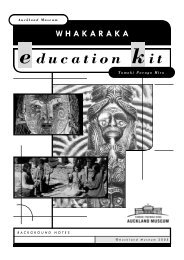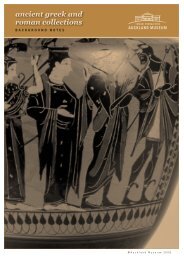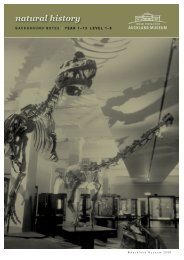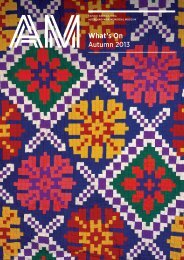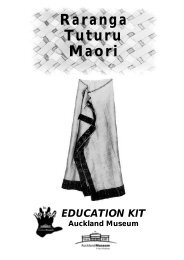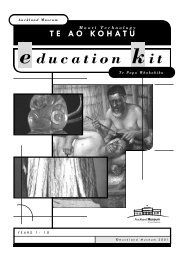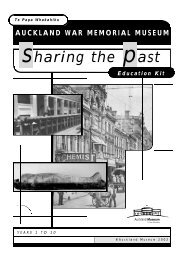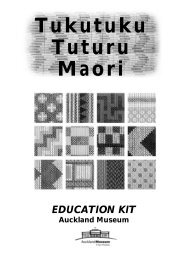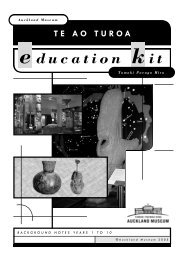Wanted: Oscar Obsidian - Auckland Museum
Wanted: Oscar Obsidian - Auckland Museum
Wanted: Oscar Obsidian - Auckland Museum
You also want an ePaper? Increase the reach of your titles
YUMPU automatically turns print PDFs into web optimized ePapers that Google loves.
NEW ZEALAND'S GEOLOGICAL ORIGINS<br />
Eighty five million years ago, New Zealand began<br />
to break away from the supercontinent called<br />
Gondwana where it had been united with all the<br />
other countries in the southern hemisphere. As<br />
New Zealand drifted away from Australia taking<br />
with it animals (including dinosaurs) and plants<br />
that lived on it, the opening between them began<br />
to form the Tasman Sea.<br />
Gondwana.<br />
12<br />
Timeline.<br />
Remnants of Gondwana in New Zealand<br />
Rocks and fossils provide links to our past connection<br />
with other countries. Most of the rock types in<br />
the Southwest corner of the South Island match up<br />
with rocks in south east Australia and Antarctica.<br />
Fossil ferns found in rocks near Port Waikato grew<br />
in coastal Gondwana forest 140 million years<br />
ago. Fossils of the seed fern Glossopteris have<br />
been found in New Zealand, Australia, Antarctica,<br />
South America and India.<br />
In the 60 million years since the Tasman<br />
Sea finished opening, erosion, tectonic<br />
processes and climate change have<br />
drastically altered the shape of New<br />
Zealand. These changes have had a<br />
huge impact on our plants and animals.<br />
New Zealand drifted north away from<br />
Antarctica as a heavily eroded lowland<br />
plain. As it moved, Earth's crust<br />
stretched and thinned and the land<br />
sank. From considerable continental<br />
beginnings, New Zealand became an<br />
archipelago of small swampy low-lying<br />
islands.<br />
<strong>Auckland</strong> <strong>Museum</strong><br />
Background



